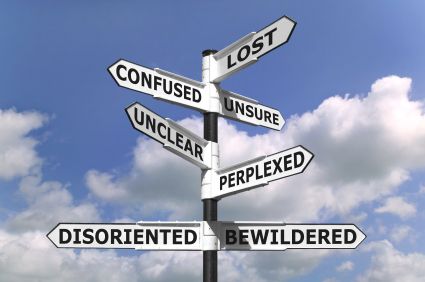 Uncertainty is a popular business buzzword. Western managements mostly use the term to explain reluctance to invest when the future direction of regulations and tax laws are unclear – and anywhere, not just in the United States. In places like Egypt, slipping closer and closer to general lawlessness, investors are uncertain about much more than that.
Uncertainty is a popular business buzzword. Western managements mostly use the term to explain reluctance to invest when the future direction of regulations and tax laws are unclear – and anywhere, not just in the United States. In places like Egypt, slipping closer and closer to general lawlessness, investors are uncertain about much more than that.
Uncertainty is not the same as risk. Risk implies that we understand future events clearly enough to assign probabilities to them. Uncertainty, on the other hand, describes unease too ill defined to assign probabilities. Clues from prior experience are ambiguous; like walking a pitch-dark alley in a completely unknown city. We cannot define the situation satisfactorily, either in our minds, or by a computer model.
Risk we can manage rationally, or think we can. Buy insurance. Make contingency plans. Perform audits and due diligence reviews. Drive carefully. Risk resilience implies measures to assure that we can continue to operate by extrapolating from our past.
That works if the costs of risk resilience are reasonable, and if events we could not predict – uncertainty – do not overwhelm us. We live with risks every day.
But uncertainty is scary. High uncertainty is unease drifting into panic. If we don’t know what to do, we’re in an emotionally devastating state. Psychologically we have to cope with this somehow, so:
1. We can accept powerlessness and fatalism, and fall into depression in some form. Just passively living until we die is not a productive emotional state.
2. We can deny that uncertainty exists and try to reconstruct the certainty of a former time, if only in our own imagination. This too is not productive. We are not innovating to cope with new conditions as they unfold.
3. We can become angry and blame everything and everyone else for changes disturbing our world. That’s even more destructive if human conflict adds to our uncertainty.
4. We can take on a positive, can-do attitude, try to anticipate changes as best we can and prepare to adapt quickly to changes that we did not foresee. While daunting, this is a willingness to cope with reality as it unfolds, but it too has some caveats.
One caveat is chasing magic solutions to make uncertainty melt away. The primary forms of that are trusting that technology, regulatory changes, or economic tweaks alone will let us cope with a resource short world. Another caveat is to make small changes and think we are coping, for example thinking that zero-to-landfill is the end point of adapting to a resource short world.
Both “caveat” points underestimate the complexity of both human and environmental systems, and their propensity to produce unanticipated outcomes. We are relating to too small a view of the systems we deal with.
We have to relate more broadly to larger systems of which we a part in order to change deeply held assumptions. Doing so enters deep human waters. Our biggest challenge is changing us – learning to re-frame our problems from different perspectives and multiple perspectives. Just accepting that the world has limited resources and that we are at many of those limits leads to many other changes in thinking if we actually take this statement as axiomatic.
Going for improved quality of life while greatly reducing resource use is even a fun challenge to our inventiveness if we just wrap our heads around it.
